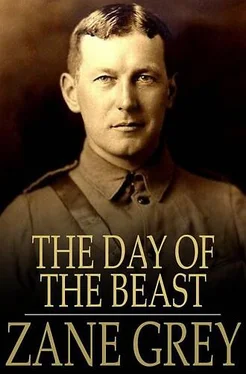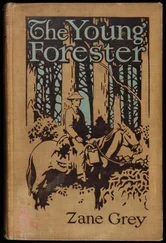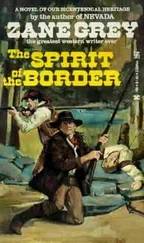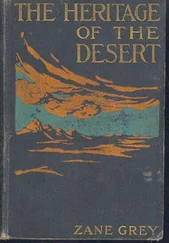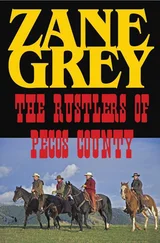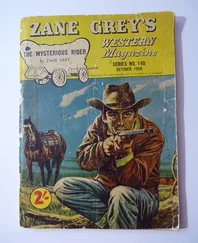Zane Grey - The Day of the Beast
Здесь есть возможность читать онлайн «Zane Grey - The Day of the Beast» весь текст электронной книги совершенно бесплатно (целиком полную версию без сокращений). В некоторых случаях можно слушать аудио, скачать через торрент в формате fb2 и присутствует краткое содержание. Жанр: Старинная литература. Описание произведения, (предисловие) а так же отзывы посетителей доступны на портале библиотеки ЛибКат.
- Название:The Day of the Beast
- Автор:
- Жанр:
- Год:неизвестен
- ISBN:нет данных
- Рейтинг книги:4 / 5. Голосов: 1
-
Избранное:Добавить в избранное
- Отзывы:
-
Ваша оценка:
- 80
- 1
- 2
- 3
- 4
- 5
The Day of the Beast: краткое содержание, описание и аннотация
Предлагаем к чтению аннотацию, описание, краткое содержание или предисловие (зависит от того, что написал сам автор книги «The Day of the Beast»). Если вы не нашли необходимую информацию о книге — напишите в комментариях, мы постараемся отыскать её.
The Day of the Beast — читать онлайн бесплатно полную книгу (весь текст) целиком
Ниже представлен текст книги, разбитый по страницам. Система сохранения места последней прочитанной страницы, позволяет с удобством читать онлайн бесплатно книгу «The Day of the Beast», без необходимости каждый раз заново искать на чём Вы остановились. Поставьте закладку, и сможете в любой момент перейти на страницу, на которой закончили чтение.
Интервал:
Закладка:
“You mean the Girl's Literary Guild, with rooms at the Atheneum?”
“Yes. But, Miss Hill, the literary part of it is bunk. We meet there to dance. The boys bring the girls cigarettes. They smoke, and sometimes the boys have something with them to drink.”
“These—these girls—hardly in their teens—smoke and drink?” gasped Miss Hill.
“I'll say they do,” replied Bessy Bell.
“What—does the 'Bell-garter' mean?” went on the teacher, presently.
“One of the boys stole my garter and fastened a little bell to it. Now it's going the rounds. Every girl who could has worn it.”
“What's the 'Old Bench'?”
“Down in the basement here at school there's a bench under the stairway in the dark. The boys and girls have signals. One boy will get permission to go out at a certain time, and a girl from his room, or another room, will go out too. It's all arranged beforehand. They meet down on the Old Bench.”
“What for?”
“They meet to spoon.”
“I find the names Hardy Mackay, Captain Thesel, Dick Swann among these notes. What can these young society men be to my pupils?”
“Some of the jealous girls have been tattling to each other and mentioning names.”
“Bessy! Do you imply these girls who talk have had the—the interest or attention of these young gentlemen named?”
“Yes.”
“In what way?”
“I mean they've had dates to meet in the park—and other places. Then they go joy riding.”
“Bessy, have you?”
“Yes—but only just lately.”
“Thank you Bessy, for your—your frankness,” replied Miss Hill, drawing a long breath. “I'll have another talk with you, after I see your mother. You may go now.”
It was an indication of Miss Hill's mental perturbation that for once she broke her methodical routine. For many years she had carried a lunch-basket to and from school; for so many in fact that now on Saturdays when she went to town without it she carried her left hand forward in the same position that had grown habitual to her while holding it. But this afternoon, as she went out, she forgot the basket entirely.
“I'll go to Mrs. Bell,” soliloquized the worried schoolteacher. “But how to explain what I can't understand! Some people would call this thing just natural depravity. But I love these girls. As I think back, every year, in the early summer, I've always had something of this sort of thing to puzzle over. But the last few years it's grown worse. The war made a difference. And since the war—how strange the girls are! They seem to feel more. They're bolder. They break out oftener. They dress so immodestly. Yet they're less deceitful. They have no shame. I can blind myself no longer to that. And this last is damning proof of—of wildness. Some of them have taken the fatal step!... Yet—yet I seem to feel somehow Bessy Bell isn't bad . I wonder if my hope isn't responsible for that feeling. I'm old-fashioned. This modern girl is beyond me. How clearly she spoke! She's a wonderful, fearless, terrible girl. I never saw a girl so alive. I can't—can't understand her.”
In the swift swinging from one consideration of the perplexing question to another Miss Hill's mind naturally reverted to her errand, and to her possible reception. Mrs. Bell was a proud woman. She had married against the wishes of her blue-blooded family, so rumor had it, and her husband was now Chief of Police in Middleville. Mrs. Bell had some money of her own and was slowly recovering her old position in society.
It was not without misgivings that Miss Hill presented herself at Mrs. Bell's door and gave her card to a servant. The teacher had often made thankless and misunderstood calls upon the mothers of her pupils. She was admitted and shown to a living room where a woman of fair features and noble proportions greeted her.
“Bessy's teacher, I presume?” she queried, graciously, yet with just that slight touch of hauteur which made Miss Hill feel her position.
“I am Bessy's teacher,” she replied, with dignity. “Can you spare me a few minutes?”
“Assuredly. Please be seated. I've heard Bessy speak of you. By the way, the child hasn't come home yet. How late she always is!”
Miss Hill realized, with a protest at the unfairness of the situation, that to face this elegant lady, so smiling, so suave, so worldly, so graciously superior, and to tell her some unpleasant truths about her daughter, was a task by no means easy, and one almost sure to prove futile. But Miss Hill never shirked her duty, and after all, her motive was a hope to help Bessy.
“Mrs. Bell, I've come on a matter of importance,” began Miss Hill. “But it is so delicate a one I don't know how to broach it. I believe plain speaking best.”
Here Miss Hill went into detail, sparing not to call a spade a spade. But she held back the names of the young society gentlemen mentioned in the notes. Miss Hill was not sure of her ground there and her revelation was grave enough for any intelligent mother.
“Really, Miss Hill, you amaze me!” exclaimed Mrs. Bell. “Bessie has fallen into bad company. Oh, these public schools! I never attended one, but I've heard what they are.”
“The public schools are not to blame,” replied Miss Hill, bluntly.
Mrs. Bell gave her visitor a rather supercilious stare.
“May I ask you to explain?”
“I'm afraid I can't explain,” replied Miss Hill, conscious of a little heat. “I've proofs of the condition. But as I can't understand it, how can I explain? I have my own peculiar ideas, only, lately, I've begun to doubt them. A year or so ago I would have said girls had their own way too much—too much time to themselves—too much freedom. But now I seem to feel life isn't like what it was a few years ago. Girls are bound to learn. And they never learn at home, that's sure. The last thing a mother will do is to tell her daughter what she ought to know. There's always been a shadow between most mothers and daughters. And in these days of jazz it has become a wall. Perhaps that's why girls don't confide in their mothers.... Mrs. Bell, I considered it my duty to acquaint you with the truth about these verses and notes, and what they imply. Would you care to read some of them?”
“Thank you, but they wouldn't interest me in the least,” replied Mrs. Bell, coldly. “I wouldn't insult Bessy or her girl friends. I imagine it's all some risque suggestion overheard and made much of or a few verses mischievously plagiarized. I'm no prude, Miss Hill. I know enough not to be strict, which is apparently the fault of the school system. As for my own daughter I understand her perfectly and trust her implicitly. I know the blood in her. And I shall remove her from public school and place her in a private institution under a tutor, where she'll no longer be exposed to contaminating influences.... I thank you for your intention, which I'm sure is kind—and, will you please excuse me? I must dress for my bridge party. Good afternoon, Miss Hill.”
The schoolteacher plodded homeward, her eyes downcast and sad. The snub given her by the mother had not hurt her as had the failure to help the daughter.
“I knew it—I knew it. I'll never try again. That woman's mind is a wilderness where her girl is concerned. How brainless these mothers are!... Yet if I'd ever had a girl—I wonder—would I have been blind? One's own blood—that must be the reason. Pride. Could I have believed of my girl what I admitted of hers? Perhaps not till too late. That would be so human. But, oh! the mystery—the sadness of it—the fatality!”
Rose Clymer left the High School with the settled, indifferent bitterness of one used to trouble. Every desire she followed, turn what way she would, every impulse reaching to grasp some girlish gleam of happiness, resulted in the inevitable rebuke. And this time it had been disgrace. But Rose felt she did not care if she could only deceive her father. No cheerful task was it to face him. Shivering at the thought she resolved to elude the punishment he was sure to inflict if he learned why she had been expelled.
Читать дальшеИнтервал:
Закладка:
Похожие книги на «The Day of the Beast»
Представляем Вашему вниманию похожие книги на «The Day of the Beast» списком для выбора. Мы отобрали схожую по названию и смыслу литературу в надежде предоставить читателям больше вариантов отыскать новые, интересные, ещё непрочитанные произведения.
Обсуждение, отзывы о книге «The Day of the Beast» и просто собственные мнения читателей. Оставьте ваши комментарии, напишите, что Вы думаете о произведении, его смысле или главных героях. Укажите что конкретно понравилось, а что нет, и почему Вы так считаете.
